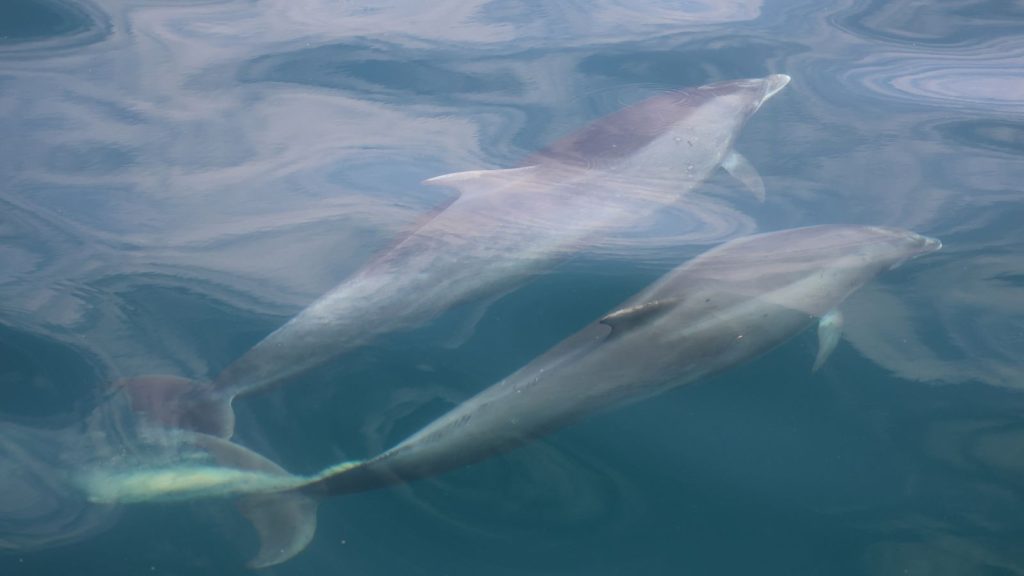Scientists are turning detective to work out what British dolphins are up to beneath the waves – by using forensic-style DNA techniques on their poo.
Conservationists have been studying the 250 or so bottlenose dolphins living in Cardigan Bay, west Wales, over many decades.
Up to now, they have only been able to observe the dolphins as they surface to breathe or play, identifying the animals from the unique marks on their dorsal fins to establish which animals were hanging out together and where.
But now for the first time scientists are using DNA excreted by the dolphins in their poo to build a more complete picture of their lives.
It allows them to identify the sex of individuals and how they are related to other animals. Signficantly, it also shows what the dolphins have been eating.
Dr Sarah Perry, marine conservation manager at The Wildlife Trust of South and West Wales, said: “In order to be able to conserve them, we need to know why they’re here and a big a missing part of that is, what they’re feeding on.
“Is that changing at different times of the year? Are certain species of fish more important to them early on in the year, in the spring, and the summer months, and then does that change over the autumn and winter months?
“Are certain species important for younger animals? We don’t know that, so that kind of information, we need to find out.”
Catching dolphin poo involves a large element of luck.
The animals occasionally eject a cloud of waste material as they swim.
But it quickly sinks, so the scientists’ boat needs to be close enough for them to scoop it out of the sea with a fine-meshed net.
A sample is then sent to a lab at the University of Aberystwyth, where DNA is extracted for analysis.
More from Sky News:
PM could scrap divisive policy
Bates attacks Post Office scheme
Dolphins adapting to effects of climate change
Results so far suggest the dolphins are having to adapt to a change in fish species as the water warms.
Dr Niall McKeown, a marine biologist at the university, said: “We are seeing large amounts of sardine, sprat, and anchovy.
“This is quite interesting because these are species that are known to have increased in abundance in Welsh waters in recent years in response, we believe, to climate change.”
Scientists unsure why dolphin numbers are falling
But questions remain about the dolphins.
The number in Cardigan Bay seems to be falling, but scientists are not sure whether that’s a natural cycle or a response to other factors.
Boat noise and disturbance from some fishing activities, such as scallop dredging, could impact the animals, which rely on sound to communicate.
Dr Parry said: “How lucky are we to have such an important population of dolphins here? It’s crazy that we really don’t know that much about them.”








